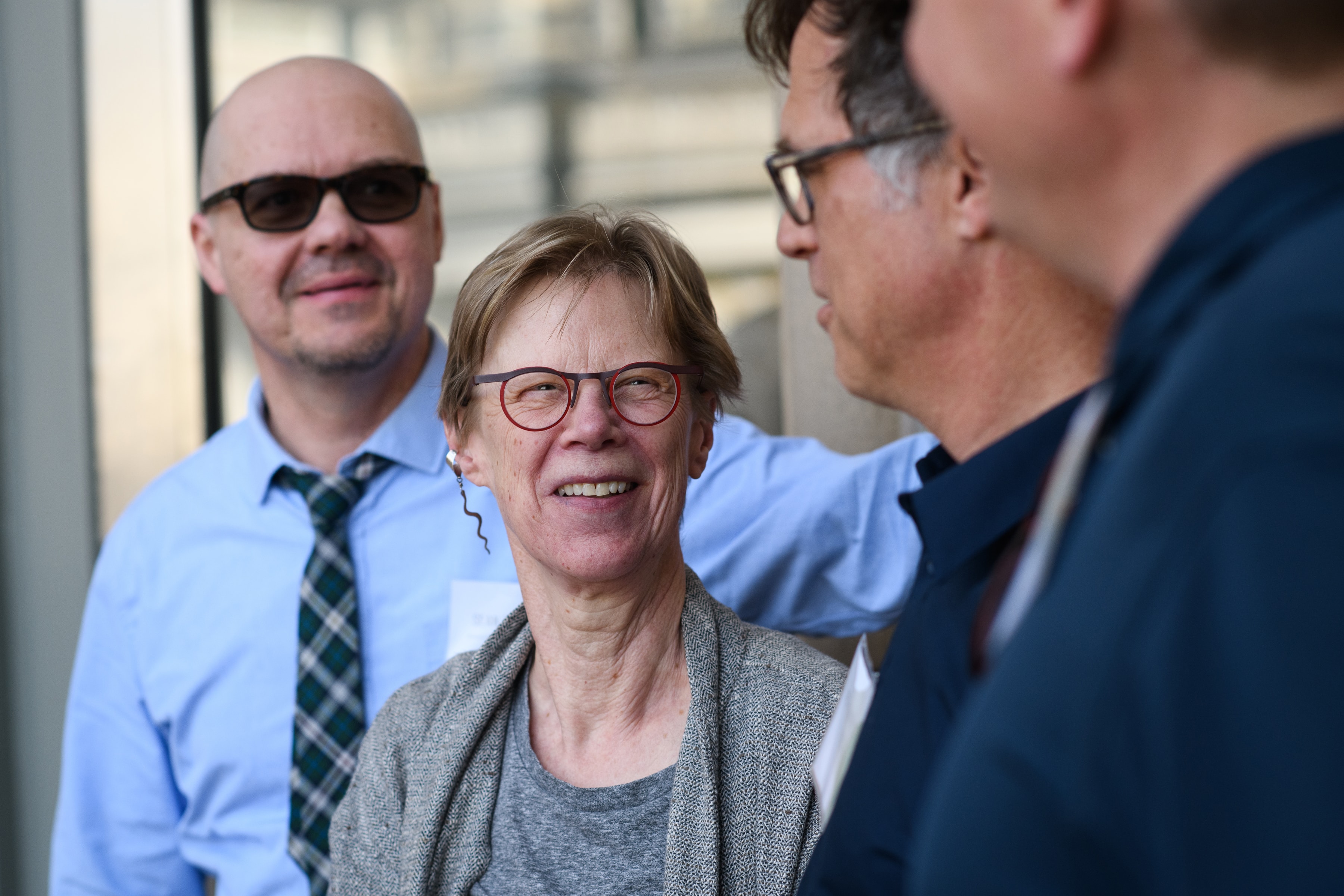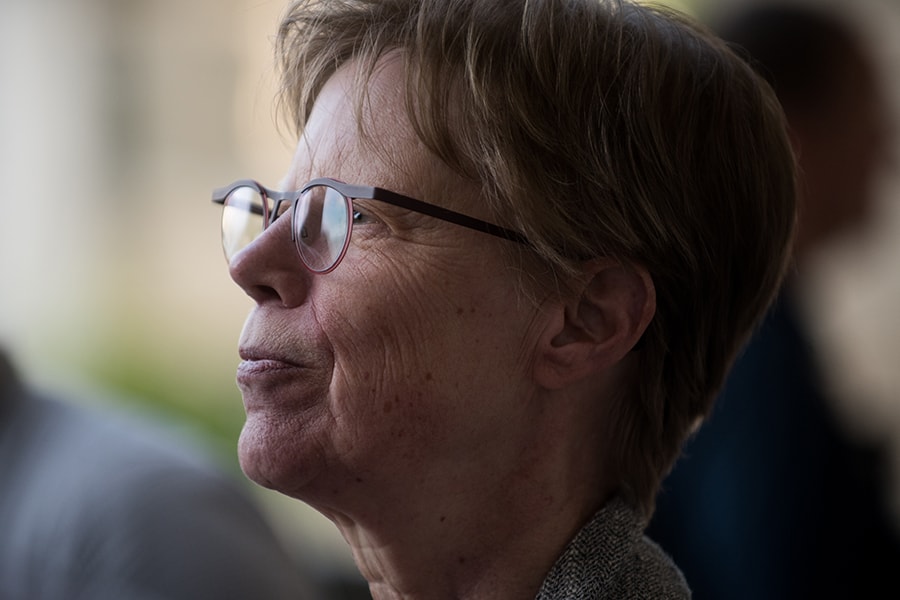
Students Reunite To Honor Barbara Johnstone's Retirement
By Daniel Hirsch
After spending two decades in Carnegie Mellon University’s Department of English, Barbara Johnstone, professor of English and linguistics, retired this spring. To honor Johnstone's impressive career, the Department of English hosted a one-day symposium on "Discourse Analysis and Rhetorical Study," Johnstone’s core area of expertise.
During her tenure, Johnstone advised and mentored numerous Ph.D. students in the rhetoric graduate program, who went on to become teachers and scholars. Seventeen of those students returned to campus to present on panels related to discourse analysis.
“The symposium was exactly the way I hoped to celebrate my retirement,” Johnstone said. “It was wonderful to see so many of my former students, people whose Ph.D. committees I chaired or with whom I worked closely in other ways.”
The symposium included topics ranging from the rhetoric of legislative apologies to the discourse of climate change. Former students traveled from appointments across the country, including Northeastern University, the University of Wisconsin and CMU in Qatar.
“Johnstone created a school in our rhetoric doctoral program—a school of thought—which means that students from all over the country, and beyond, came here to study discourse analysis with her,” said English Department Head Andreea Ritivoi.
Given Johnstone’s prominence in the field, Ritivoi explains it was “only obvious” to host the symposium and invite several of her former students.

In addition to teaching at CMU, Johnstone was editor of the journal "Language in Society" and wrote the widely used textbook “Discourse Analysis.” She also became an expert in Pittsburghese and authored “Speaking Pittsburghese: The Story of a Dialect,” in which she analyzed the origins of the city’s most iconic words, such as “yinz” and “nebby.”
Johnstone also taught and mentored countless students. For those who returned for the symposium, Johnstone’s impact was clearly felt.
“I've benefited from her generosity as a teacher and mentor, and tried to learn from her example,” said Peter Cramer, who received his Ph.D. in rhetoric in 2003 and is now an associate professor of English at Simon Fraser University.
“If I look at my CV, many of my accomplishments as a researcher and teacher are traceable to opportunities she created, problems she helped me articulate, questions she answered, feedback she provided or materials she shared,” Cramer said.
“She is as dedicated a mentor as one could hope for,” said Thomas Douglas Mitchell, an associate teaching professor of English at CMU in Qatar who received his Ph.D. in rhetoric in 2013.
From Johnstone’s teaching, Mitchell says he will forever carry with him the idea that “almost any stretch of language can yield something interesting and subtle when you take a systematic and detailed approach to analysis.”
For Garret Stack, a 2017 Ph.D. graduate who is now an assistant professor of English at Ferris State, Johnstone’s combination of knowledge and candidness made her an exceptionally effective advisor. Stack recalled a time when Johnstone handed back his first draft of a dissertation chapter completely marked up saying: “Okay, this isn't very good. Now let’s talk about why."
“That juxtaposition, ‘it's not good but we can fix it,’ is why she is such a great teacher and mentor,” Stack said. “She knows what's wrong and she's honest about it—never a lily-gilder, but she's willing to work with you to fix it regardless of the number of drafts that will inevitably result. Honesty and patience, personified.”
In her retirement, Johnstone will continue her academic research with two forthcoming papers and a book in progress. She also joined the local chapter of the American Association of University Women. Additionally, Johnstone plans to use her skills as a writer and thinker to be more involved in local activism.